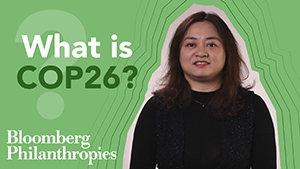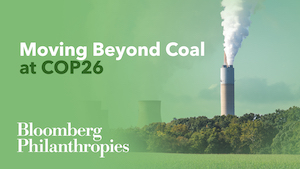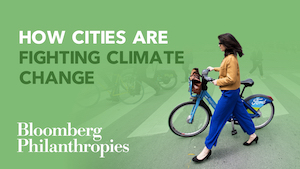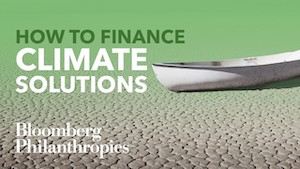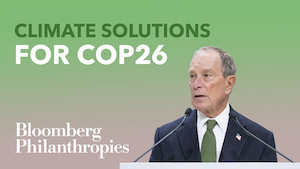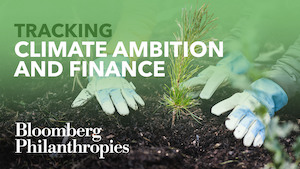suntory and gzero discuss climate innovation world needs asia region tranform
not just convemtional renewablessolar/wind but hydrogen/geothermal
both mix of advanced and developed fusion of solurions (ian and tok)
make of dialoogue


icc/sciectistskobarrett 40% august report on regions- also intercative atlas
urgent asian
sea rising/ coastal loss land
precipitation
compound multipliers - especiially delta eras - in asia fewer but more extreme cyclones
your interpreation nobel physicits- first time mainstresm scientists recogised by nobel on climate - also reminded me sop21 - plastered on metro walls science equations; i also work for noah manabe worked at pri8nceton world class climate curriculum - graduation of converation
ipcc 2007 shared peacenextb policies in economics - bremner talkeed toandersn asia unep

anderen chamio whole region can - next rudd look at this ideas deeper - presidemt asia society
big 5 onevthrd emissions china japan korea india aus - only china taken collab daloue lead- the other4vpolicy laggard esp australia- far behing eg euro converstaion -oin past japan led kyoto protocol- led old wave but not new wave- regional collab deficit- we need ourregion to be net zero by 2050
big 5 interqfts with emerging asia
all small in relative emissions in south east asia - indonesia needs to be seem asvthe4 big player in sesia as it becojes top 7 economyb in world of 2050 - which are top 7 2050 -pop and nat resources
china india japan indonesia us germany (eu if one)
cf htdrocarbon and conservative thinktabks analogy tobacco -tudd is very good ; bremner very good
pivotal is science and tech
hydrogen is big opportunity on scale
we have huge politics deficit
some tech deficit
hard to answer who is number 1 political leader boris?/sharma france new germany new japan xi on phone /// biden needded /trudeau who doing it?
only chnace mobistaion of public opinion (nut opposite of those who mobilises nationalism)
undia/china need to be on same side of equty debate- half of peoples
hat isrudd view that asia can geton same side due to climare - science will get there - since copenhaged2009 when china blocked- china has done reading and become progresslrader- can see future consequences- india uch further behing on whole develppmemt curve - sxienbce will land both countries on rght side of hostor but willit be in time bedfpre asia is half of emissions
multipliers tech
east asian summit nees to derup pan asian strategy on future of grren- long-term geo-ftrade maps - can we connect 3 political leaders beyond the time of their democratic term of leadership
the opportunities where asia can lead as rule setter instead of rule tKERS
;ASTLU WHAT IS PRIVATE SECROR - INDONESAI INVESTOR COMAPNY
100 YEAR IVESTMENT PORTFOLIO OUT OF INDONESIA WITH SUNTORY WITH MODERATOR FROM BREMNER GZERO
a5 a7 a20 SAVE THE WORLD - KEY WHO MAKES LIFE LONG PLATFORM EVEN IF POLITICS ONLY GIVE 3 YEARS
SUNTIRY WE NEED REAL GOALS FOR 2030 NOT JUST 206-0
UNITE ATTACH ON GREENWASHERS AFTER COP26 CONSTRUCUTUVELY
HOW SHOW WE ARE MAKING PROGRESS - REVIEW LESONS CONSTRUCTIVELY
SO SOCIETIES GET CONFIDENCE
SUNTORY SCOPE 1 50% REDUCATION EMISSIONS 30% SUPPLU CHAIN - SCOPE 1/3
IN SUNTORY CAN SEE HOW TO ADANVCE IN EUROPE BIT NOT REALLY ASIA
NEED COMMITMETS OF SUPPLY CHAIN PARTENRS - VERY DIFFICULT FOR SME PARTENRS
IF WE DONT SET AND ACHIEVE 20230 GOALS WE ARE COOKED
ENTRIRE VALUE CHAIN NEEDS COLLAB
WHERE IS CONSTRUCTIVE PEOPLE POWER-- coomunity poewer
SCOPE 3 PERMISSIONS - WHOLE CHAIN
FOCUS QUESTION ON SME SUPPLY CAHIN SOLUTIONS
-INDOENSIA VIEW
REPORT "WAR" TOO SLOW ONLY 2 AGRICULTURAL FACTORS ON TRACK
- "CLIMATE FINANCE" UP 68% 2019 FROM 2018 BUT COVID INTERRUPTED SO MUCH OF POTENTIAL SME PROGRESS
NEEDS ABOUT3 TRILLION DOLAR NEW CAPITAL A YEAR
need value investet toos
specific indonesia examples
indonesia hosts g20in 2022 and link to cop26
new electricity plan indonesia good but do we know how to execute
low carbon national dev plan- lcd maps critical
aim to change business as usual by 2030 land sectr
indonesia projcects green can add 5% growth -clean natural resources- ability of indonesiafinacial sector to learn
our risk is we are coal-based - do we really understand our specific transition challenge - we need clear road map on how given where our energy is historically
-imporatnce of how women leadersvuniquely contribute- higher level of social priority-- women used to higher risks/burdens - have been left out in past- hugevlead if now included in locally;; innovation and participation of women at every level can be womens step up/womens contribution and responsibility - women call acrion
----closing thoughts
suntory- we have the tech
combination of geography, plicy -impossible to do all once - need tranparent graduatio approach (blie green hydrogem)- netzero needs to connect ocean, biodiversity
bremner - kevin note of oprtmism
we agreb on science
we agre 1.2 degree of warming already ka=hhapen expoentially raising
most iportant summitblargely take can - china rusiia aonwt be there - america will turn up with no real policy
need to clarify where leadership is not pretend - s that why we call asia to lead the transparent summits
pp-community
if cop 26b falls apart it tells me not leasb by lot of old people -we need copy0
japaN BANK INTERNATIONAL COOPERATION- TOMORROW SPECIFIC PLASTIC GZWEO MEDIA /SUSTIAINABILITy
On October 21-22nd, the Sustainability Leaders Summit will go beyond preexisting narratives and debate priorities for governments and industries ahead of COP26. Placing the spotlight on Asia's role in the global sustainability agenda, the event will address whether Asian countries and companies can achieve shared sustainability goals, and what is needed to help get them there.
The summit is sponsored by Suntory and co-hosted by Tak Niinami, CEO of Suntory Holdings, and Ian Bremmer, founder and president of Eurasia Group and GZERO Media. We’ll be joined by global leaders from multilateral institutions, national governments, and the private sector.
Our objective is ambitious: to define an action-oriented sustainability agenda for governments and the private sector, create more resilient societies, reduce plastic intake, create economic value and boost deterrence capabilities to build a more sustainable world.
Session #1: Protecting the Planet: Asia’s risk and responsibility
Thursday, October 21, 2021
8 am ET / 8 pm SGT
- Asia’s Environmental Impact: Understanding the science behind key climate risks affecting the region and how Asian governments and industry are contributing to both problems and solutions
- Policy Priorities: How are policymakers and global organizations collaborating on climate action, setting and achieving targets, and working towards urgent outcomes?
- Innovation and Asia’s Future: Leading private-sector companies, start-ups and investors discuss technology and innovation’s roles in tackling climate change: Leading private-sector companies, start-ups and investors discuss technology and innovation’s roles in tackling climate change
Speakers:
- Ian Bremmer, President and Founder, Eurasia Group and GZERO Media
- Tak Niinami, CEO, Suntory Holdings
- Inger Andersen, Under-Secretary-General, United Nations
- Ko Barrett, Vice Chair, The Intergovernmental Panel on Climate Change (IPCC)
- Shinta Kamdani, CEO, Sintesa Group
- Kevin Rudd, former prime minister, Australia
- Shari Friedman, Managing Director of Climate and Sustainability, Eurasia Group (moderator)
Session #2: Plastics: Unlocking sustainable solutions
Friday, October 22, 2021
8 am ET / 8 pm SGT
- Sustainable Plastic: Since its invention, plastic has enabled innovation in manufacturing, healthcare, engineering, food storage and transportation, to name a few. But irresponsible and illegal approaches to plastic waste management, along with unclear or absent recycling regulations have turned it into a global problem. Will a shift away from plastics to alternative materials be better for the environment and cut emissions? Are there safer, more sustainable ways to use plastic?
- The Roadmap to Circularity: What are the practical pathways and current roadblocks to a “circular economy”? How do we change attitudes and behaviors and move towards greater societal participation in recycling and reuse solutions? What role do policymakers have to play in this transition?
Speakers:
- Ian Bremmer, President and Founder, Eurasia Group and GZERO Media
- Tak Niinami, CEO, Suntory Holdings
- Shari Friedman, Managing Director of Climate and Sustainability, Eurasia Group
- Rob Kaplan, CEO, Circulate Capital
- Sean Kidney, CEO, Climate Bonds Initiative
- Aloke Lohia, CEO, Indorama Ventures
- Tadashi Maeda, Governor, Japan Bank for International Cooperation
- Hannah Testa, Activist
Anchoring the Summit is a new research report prepared by Eurasia Group,
“Unlocking Sustainable Plastics in Asia,” which advocates for a much more dynamic role for both the public and private sector in Asia to counter the proliferation of single-use plastic containers, which have had an outsized impact on the environment.
